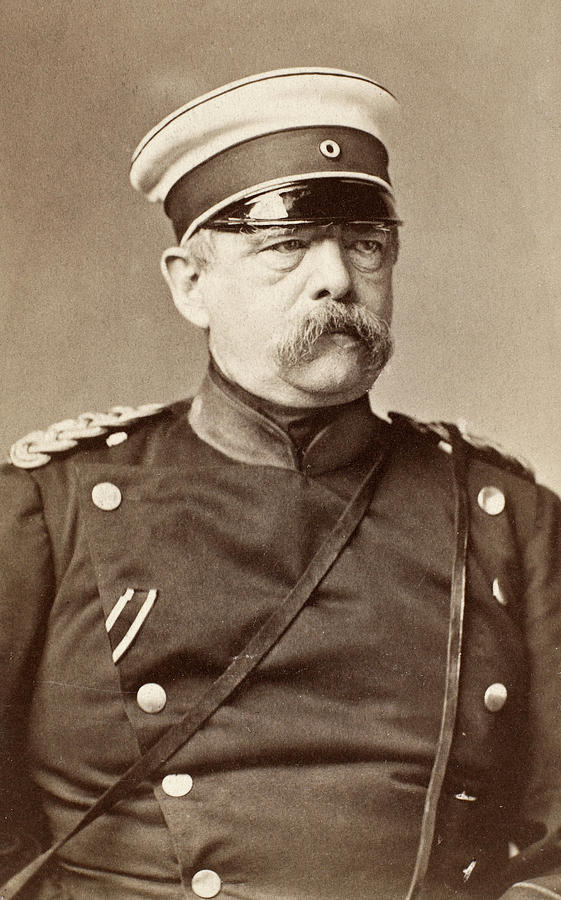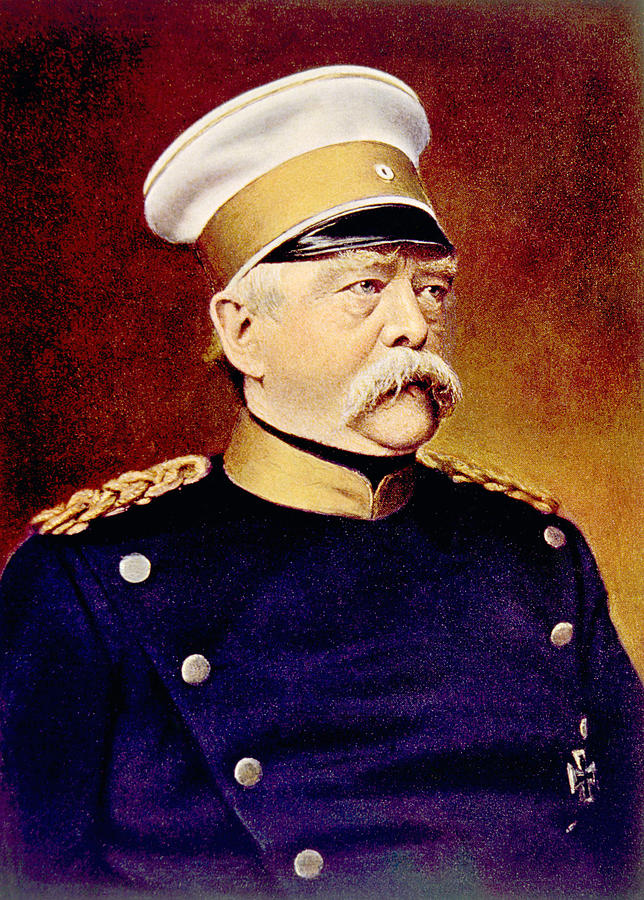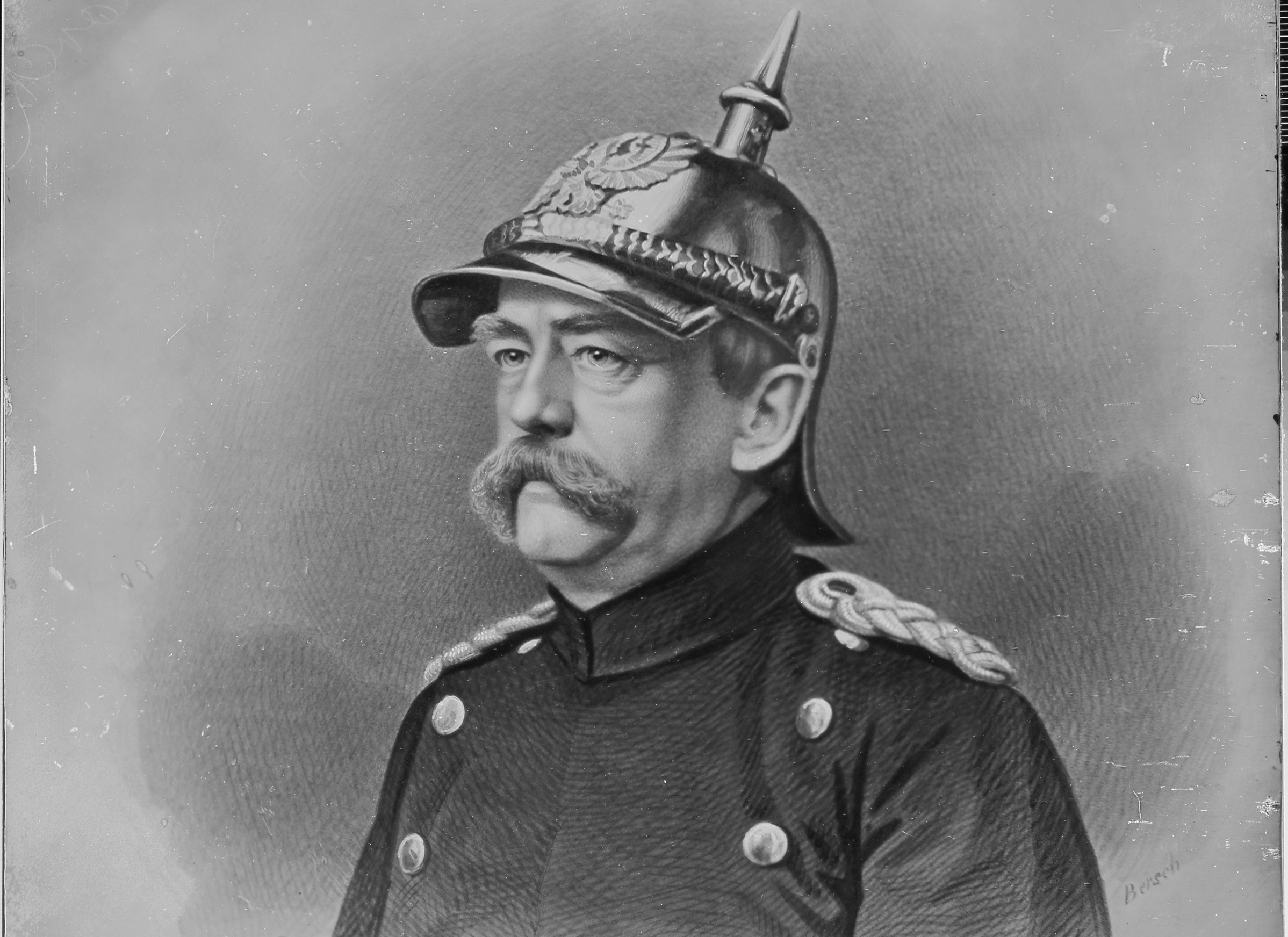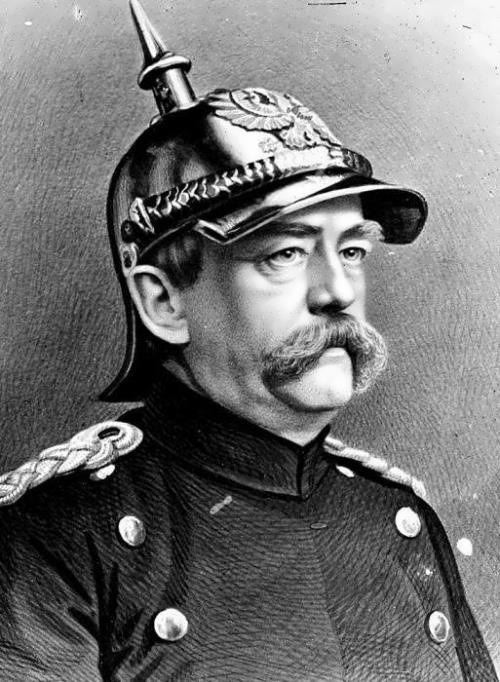
Otto von Bismarck, 1871 r/ColorizedHistory
Bismarck-Monument, Hamburg. Prince Otto Eduard Leopold von Bismarck-Schönhausen Duke of Lauenburg, (1 April 1815 - 30 July 1898), was an aristocrat and statesman of the 19th century in Europe. As Prime Minister of Prussia from 1862 to 1890, he was most responsible for the uniting most of the many independent German countries into the new.

Otto von Bismarck y la Seguridad Social Blog de Derrama Magisterial para el magisterio
Otto von Bismarck (April 1, 1818-July 30, 1898), a son of the Prussian aristocracy, unified Germany in the 1870s.And he actually dominated European affairs for decades through his brilliant and ruthless implementation of realpolitik, a system of politics based on practical, and not necessarily moral, considerations.

Otto von Bismarck Kids Britannica Kids Homework Help
Bismarck, Otto von. Bismarck, Otto von remains one of the most significant political figures of modern Germany. This stature derives from his contribution to the creation and shaping of the modern German state as Prussian minister president and imperial chancellor from 1862 to 1890. His activities and attitudes as parliamentary deputy during.

Die Post ist da! Duda.news
The man who would help launch that storm was Prussian Prime Minister Otto von Bismarck, the head of Wilhelm's government at Berlin. Bismarck had already masterminded the formation of the smaller Teutonic states into the North German Confederation in 1866, with Prussia as its linchpin. Moreover, as Prussia's "blood and iron chancellor.

Otto von Bismarck, primeiro chefe de governo do Império
Otto von Bismarck - Prussian Statesman, Unifier: In 1859 Bismarck was sent to Russia as Prussian ambassador, and not long thereafter (May 1862) he moved to Paris as ambassador to the court of Napoleon III. Thus, he had 11 years of experience in foreign affairs before he became prime minister and foreign minster of Prussia in September 1862. He had come to know personally the architects of.

Otto fon Bismark Bismarck, German royal family, German history
Otto von Bismarck, often referred to as the "Iron Chancellor," was the mastermind behind the unification of Germany. Through strategic diplomacy and nationalistic fervour, Bismarck paved the way for the birth of a united German nation. With its newfound unity, Germany rapidly emerged as a formidable force in Europe.

Prince Otto Von Bismarck (18151898) Photograph by Granger Fine Art America
Otto von Bismarck was a Prussian politician who became Germany's first-ever chancellor, a position in which he served from 1871 to 1890. Through a series of wars, he unified 39 individual states into one German nation in 1871. His policies as chancellor were aimed at holding the newly-formed state together in the face of religious, political.

FileOttoVonBismarck1.jpg Wikimedia Commons
Otto, Prince of Bismarck, Count of Bismarck-Schönhausen, Duke of Lauenburg (German: Otto, Fürst von Bismarck, Graf von Bismarck-Schönhausen, Herzog zu Lauenburg, pronounced [ˈɔtoː fɔn ˈbɪsmaʁk] ⓘ; 1 April 1815 - 30 July 1898; born Otto Eduard Leopold von Bismarck) was a Prussian and later German statesman and diplomat.. From his origins in the upper class of Junker landowners.

Otto Von Bismarck, 1871 Colorized historical photos, History, German history
Otto von Bismarck. Otto, prince von Bismarck, (born April 1, 1815, Schönhausen, Altmark, Prussia—died July 30, 1898, Friedrichsruh, near Hamburg), Prussian statesman who founded the German Empire in 1871 and served as its chancellor for 19 years. Born into the Prussian landowning elite, Bismarck studied law and was elected to the Prussian.

FileGeneral Otto von Bismarck.jpg
Otto von Bismarck, prime minister of Prussia (1862-73, 1873-90) and founder and first chancellor (1871-90) of the German Empire whose time in office took Prussia from the weakest of the five European powers to, as the unified German Empire, the foremost military and industrial power on the Continent.

Otto von Bismarck Wikiwand
Otto von Bismarck: Early Years . Otto Eduard Leopold von Bismarck was born April 1, 1815, at his family's estate in the Prussian heartland west of Berlin.

Otto von Bismarck Kids Britannica Kids Homework Help
Otto von Bismarck. Prince Otto Eduard Leopold von Bismarck-Schönhausen, duke of Lauenburg (April 1, 1815 - July 30, 1898) was one of the most prominent European aristocrats and statesmen of the nineteenth century. As minister-president of Prussia from 1862 to 1890, he engineered the unification of the numerous states of Germany.

Otto Von Bismarck 18151898, Chancellor Photograph by Everett
Otto Eduard Leopold von Bismarck was born into an aristocratic family at Schönhausen, northwest of Berlin, on 1 April 1815. He attended a prestigious school in Berlin followed by the University.

18152015 Bismarck y la unidad alemana
Otto von Bismarck was born on 1 April 1815 at Schönhausen in Brandenburg, Prussia. His father, Ferdinand von Bismarck-Schönhausen, was of the old Prussian nobility. His mother, Wilhelmine Mencken, from the upper bourgeoisie. He studied law at the University of Göttingen in Hanover, and obtained his degree in 1837.

World of faces Otto von Bismarck Iron Chancellor World of faces
Otto von Bismarck was a Prusso-German statesman who was the architect and first chancellor of the German Empire. "Driven by a strong sense of power," Bismarck entered politics in 1847, where he was eventually appointed Minister-President by King Wilhelm I of Prussia. Thus, it was here that the "Iron Chancellor" was born.

Valparaíso 1851 Otto von Bismarck, el “Canciller de Hierro” Bicentenario de su nacimiento 1º de
Otto von Bismarck. Otto von Bismarck (1815-1898), born on April 1, 1815 at Schönhausen, is considered the founder of the German Empire. For nearly three decades he shaped the fortunes of Germany, from 1862 to 1873 as prime minister of Prussia and from 1871 to 1890 as Germany's first Chancellor.